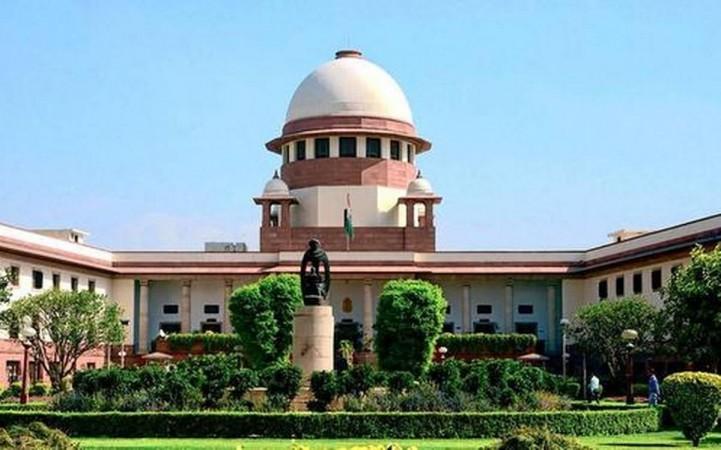The Supreme Court of India on Friday extended the deadline for completion of trial in the 1992 Babri Masjid demolition case and said the judgement should be delivered by August 31.
The order passed by a two-judge bench comprising justice Rohinton Fali Nariman and Surya Kant asked special judge SK Yadav to ensure the new deadline is adhered to.
Deadline extended till August 31
The special judge SK Yadav had written to the SC on May 6 seeking an extension of the deadline as the recording of evidence has yet not been completed.
Granting the extension, the apex court indicated to the special judge to avail the facilities of video conferencing to complete recording of evidence and ensure the proceedings reach to a conclusion, and that the judgement is delivered by August 31.

Avail video conferencing
"It is up to Shri Yadav to control the proceedings in accordance with the law so that inordinate delay that is beyond the time frame that we now give, is no longer breached," the apex court said.
Earlier in July 2019, the supreme court had directed the trial court to deliver the verdict in the case within nine months, which was to end this April.
The bench on Friday said that "despite nine months having expired from the aforesaid date, we still find that the evidence is yet not completed'.
The Babri Masjid demolition case
The case pertains to Babri Masjid demolition in December 1992 and involves several BJP leaders including LK Advani, Murli Manohar Joshi, Uma Bharti, Sakshi Maharaj and former UP chief minister Kalyan Singh.
Trial of Kalyan Singh
Kalyan Singh, who was the chief minister of Uttar Pradesh when the Babri Masjid demolition took place, was put on trial last year in September when his tenure as the governor of Rajasthan came to an end.
In April 2017, the SC had allowed the CBI to frame criminal charges against eight BJP leaders connected with the case. The court had ordered the trial court to conclude the case within two years and had also directed that the judge hearing the case to not be transferred.
The Supreme court, last year in November, had ruled that the disputed land in Ayodhya be allotted for construction of Ram temple. The bench ordered separate five-acre land for the construction of the mosque.

















